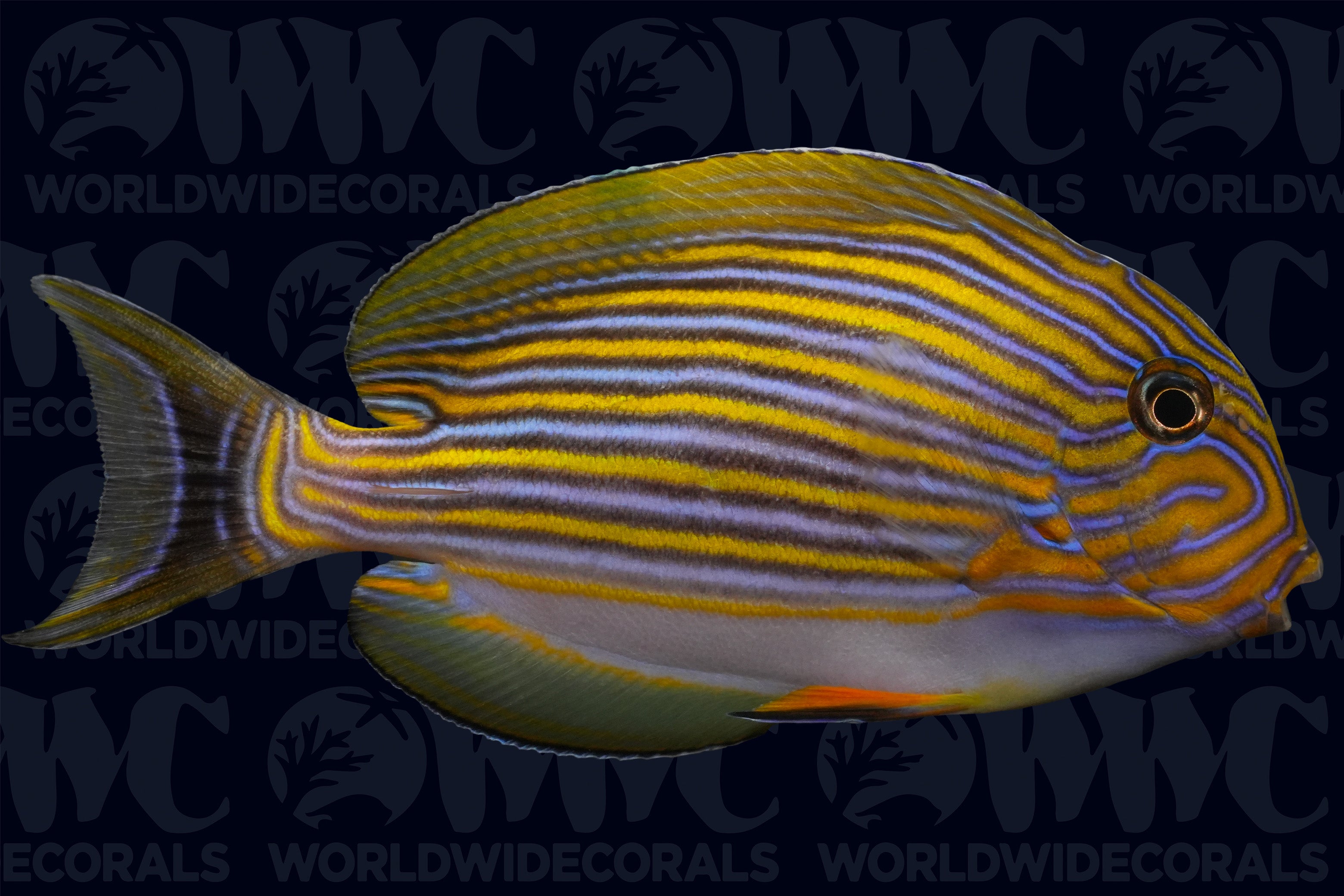Description
Acanthurus lineatus
Tangs are also known as surgeon fish within the industry due to them having a sharp spine that looks similar to a scalpel at the base of their caudal fin (tail). They use this spine as protection against predators, so be sure to use caution when handling. In the wild, adults tend to live singly, so they should not be housed with fish that look similar in shape and colors. Tangs are considered to be peaceful towards most other tank mates and can be added to reef aquariums. The Clown Tang will grow to be about 12 inches in size and will need substantial swimming space. Providing rockwork will allow them to hide when stressed and graze on algae. For continued health, provide a varied diet of frozen meaty foods, marine pellets and algae-based food to help strengthen their immune systems. The Clown Tang inhabits lagoons and shallow coastal reefs in the Indo-Pacific Ocean up to 15 meters deep.
Tangs are also known as surgeon fish within the industry due to them having a sharp spine that looks similar to a scalpel at the base of their caudal fin (tail). They use this spine as protection against predators, so be sure to use caution when handling. In the wild, adults tend to live singly, so they should not be housed with fish that look similar in shape and colors. Tangs are considered to be peaceful towards most other tank mates and can be added to reef aquariums. The Clown Tang will grow to be about 12 inches in size and will need substantial swimming space. Providing rockwork will allow them to hide when stressed and graze on algae. For continued health, provide a varied diet of frozen meaty foods, marine pellets and algae-based food to help strengthen their immune systems. The Clown Tang inhabits lagoons and shallow coastal reefs in the Indo-Pacific Ocean up to 15 meters deep.
3 DAY GUARANTEE | Hassle Free | 100% Satisfaction | Online Orders Only


